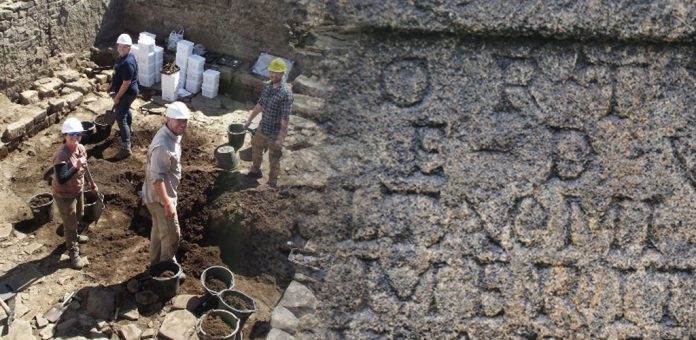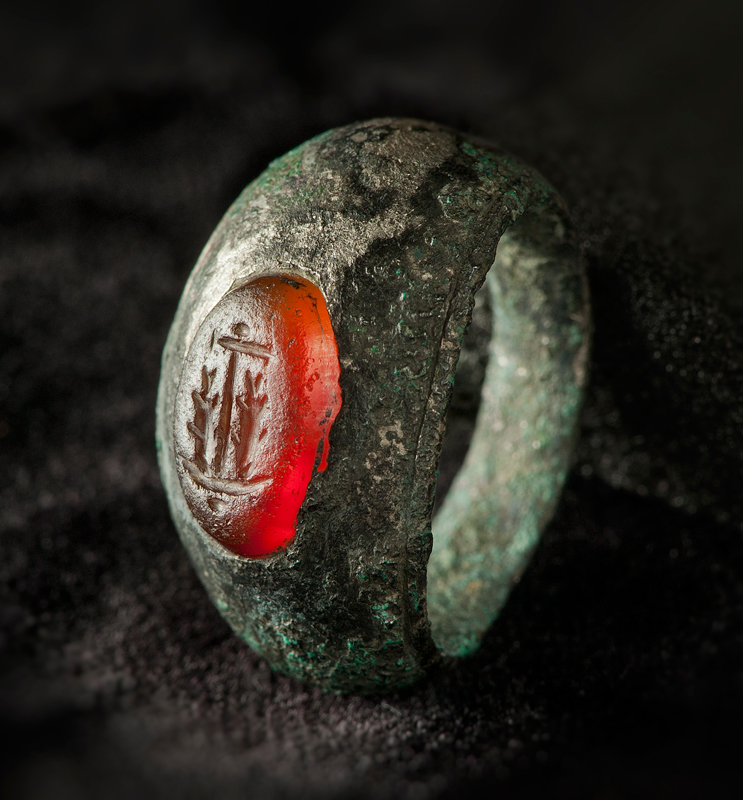Recent discoveries at Binchester Roman Fort near Bishop Auckland (north east England) represent some of the most well preserved remnants of an empire dating back some 1,800 years.
The finds include one of the earliest pieces of evidence for Christianity in Roman Britain in the shape of a silver ring set with an intaglio depicting two fish hanging from an anchor. Although found widely, elsewhere in the Roman Empire, it is only the second example from Britain. According to the Binchester archaeologists, the form of the ring and the shape of the stone indicates a 3rd century date, which is surprisingly early for a Christian object in Britain, as it pre-dates the accession of Constantine in AD306.
Vinovia
Known to the Romans as Vinovia, the fort commanded the main road that ran from the legionary headquarters at York northwards to Hadrian’s Wall. It formed a key element of the complex frontier system that lay both sides of the Wall that marked the northern-most edge of the Roman Empire for nearly four hundred years. The fort itself was built to house a cavalry regiment in the early years of Roman control in Northern England.
Although it housed troops from across the Empire, including Spain and Germany, it was was not just a military site as it had a thriving civilian settlement (vicus) which grew up at its gates.
Bath house
An important element of any Roman Fort was a bath house and the one discovered at Binchester stands to around two metres (seven feet) high and still retains the original floor, doorways and window openings. Fragments of wall plaster show that its interior was once covered with brightly coloured painted designs.
Dr David Mason, principal archaeologist, Durham County Council, said: “These findings are hugely significant as they are virtually in-tact and present a graphic illustration of life under the Roman Empire.”
The excavation project, now in its sixth year, is a joint venture between archaeologists at Durham County Council, Durham University, the Architectural and Archaeological Society of Durham and Northumberland and several American universities.
Project coordinator, Dr David Petts, lecturer in archaeology at Durham University, said: “Our excavations have uncovered parts of one of the best preserved Roman buildings in Britain. The building itself and the wonderful array of artefacts we have recovered from Binchester give us an unparalleled opportunity to better understand life on the northern frontier in the Roman period.
“For example, the altar that was found is a reminder that bath houses were about more than keeping clean and exercising and were actually social centres – a bit like our modern day leisure centres.
“The most unique feature of these remains is the sheer scale of their preservation. It is possible to walk through a series of Roman rooms with walls all above head height; this is pretty exceptional for Roman Britain.”
Inscribed by a retired trooper
The altar was dedicated to the Roman Goddess, Fortuna, and inscribed by a retired trooper who served with a unit of the Spanish cavalry based at Binchester.
The trooper described his rank as “architectus” and this is the only example from the whole of the Roman Empire, outside of Rome itself, which shows that architects were on the staff of auxiliary cavalry units and not just the legions of the Emperor’s personal protection unit, the Praetorian Guard.
Last year, a first year Durham University student working at Binchester found a 1,800-year-old carved stone head of what is believed to be a Roman god.



